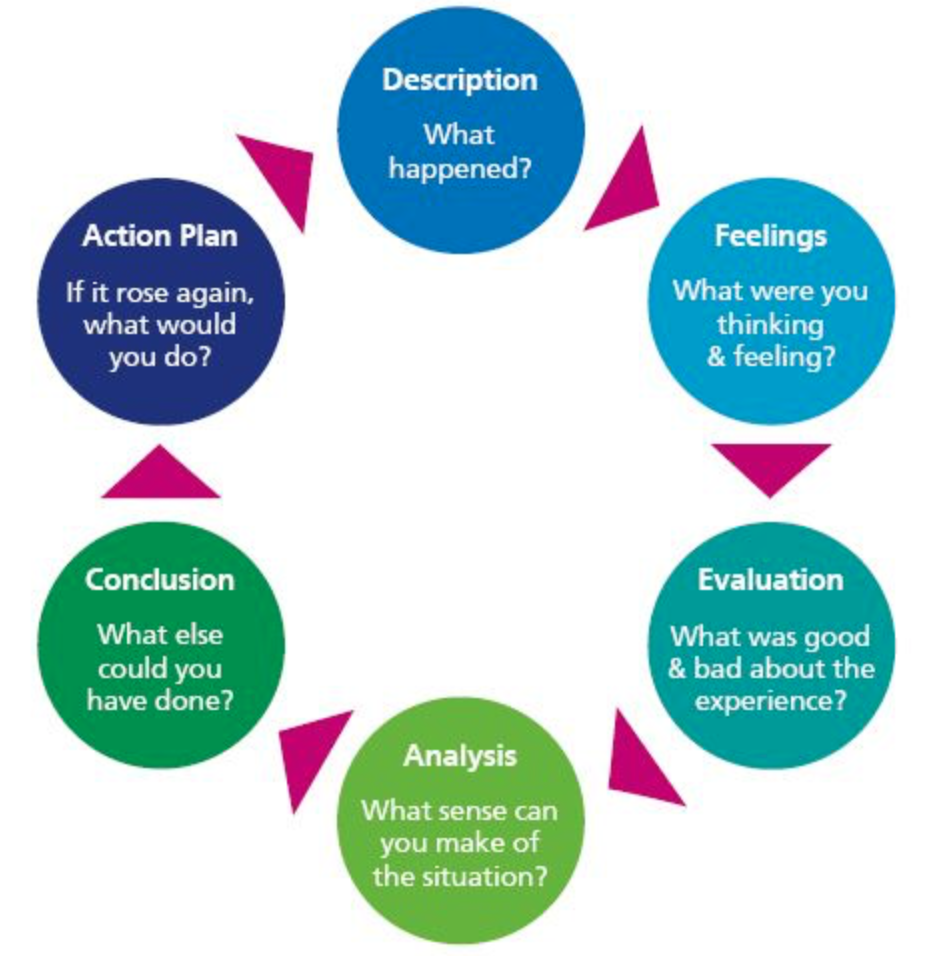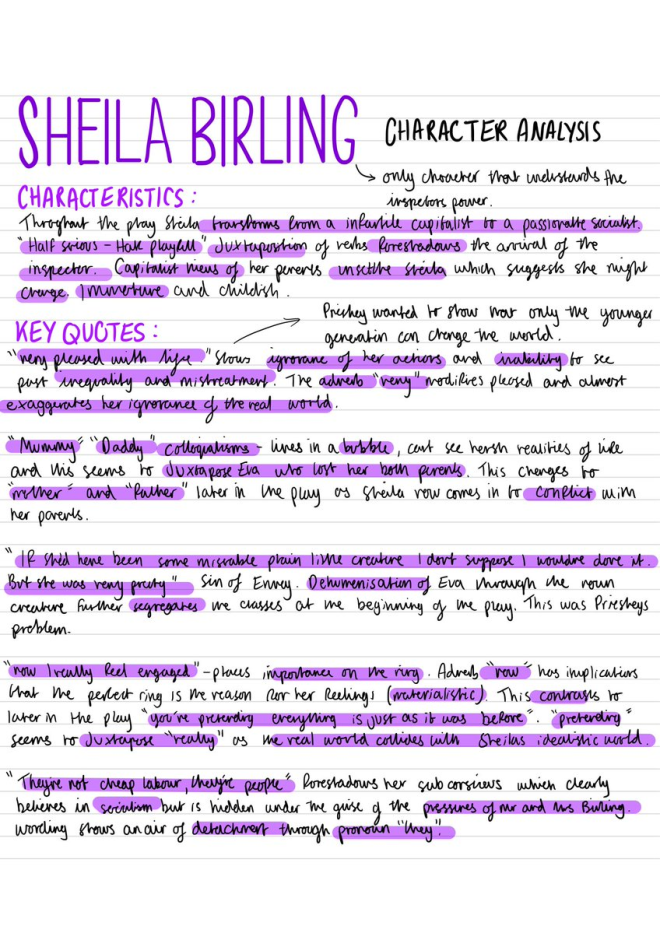Adapting Learning
Teaching is a profession, which like all occupations, comes with difficulties. I had anticipated classroom management and disciplining to be some of the more challenging aspects I would encounter upon my time at Limavady Grammar School (LGS). However, what ultimately turned out to be most challenging was learning to adapt my teaching style to an individual pupil.
Through utilising Gibbs’ reflective cycle, I will here reflect upon my experience working with a pupil suffering from Obsessive Compulsive Disorder (OCD) and how I had to tailor my approach to teaching.

In November 2021 I was asked to scribe for a pupil with Special Educational Needs (SEN) during upcoming GCSE examinations. However, working with SEN pupils, at the time, was an area in which I had little experience.
Formal examinations at the best of times are stressful. Provoking feelings of anxiety in most, inspiring fear even in pupils with the utmost confidence. How much more is this then elevated for SEN pupils?
Feelings of anxiety came to dominate my mind too. Having no experience scribing or working with anyone with a mental health condition of this nature. I was concerned for the implications on this pupil’s future if I did not fulfil my role correctly. Will A Levels be a possibility? University? What careers will be accessible?
This was of particular concern for me as this pupil attended LGS in Year 8. However, moved school for the duration of Years 9 to 11. The pupil believes her reluctance to move both area and school at that time is the root of her condition, provoking OCD behaviours. Which consequently, developed and festered. Despite having now returned to LGS and working alongside medical professionals, OCD remains a dominating and debilitating aspect of her life. Furthermore, having read that “OCD can interfere with the ability to socialize, attend school, […] ultimately affecting success in school” (Helbing 8), added to my concern. Knowing this pupil’s ambition was to gain A Level qualifications made me feel anxious in knowing I would be in part responsible for her success or failure.
I voiced my concerns to the pupil’s Head of Year. I was consequently offered a position of classroom assistant for this pupil in the upcoming weeks before the examinations. This way I would observe and build a rapport with the pupil. This also proved effective in that this pupil should have had, but was still waiting for a classroom assistant; her transfer back to LGS delaying the process.
Moreover, for me, this was a massive relief. Whilst I had been provided with details of her illness, I did not fully comprehend the extreme and encumbering nature of the condition, controlling almost all aspects of this pupil’s life.
I had the opportunity to further research working with SEN pupils. I found that, “An important element in any differentiated approach involves tailoring teaching to the different styles of, and strategies for, learning adopted by pupils. But this does not mean that they should not also be encouraged to learn in new and more efficient or effective ways. Learners also need to be encouraged to develop a broader repertoire of learning strategies.” (Stradling 131).
Whilst of course aware that I was not qualified to alter this pupil’s way of working and did not wish to interfere with the work of her psychiatrist and her own personal development, this did provide some reassurance for me. Particularly regarding the nature of the upcoming formal examinations, with their strict rules and regulations which must be adhered to, despite the pupil’s medical condition.
I quickly learned to adapt my approach.
My role as classroom assistant was to assist with classroom activities, but most importantly to encourage and work on revision during study periods.
I attempted to follow Andrew Green’s advice, “The teachers role is to have a sympathetic understanding of where the students are coming from […] The students experiences and concerns are a guide to teachers in choosing material that their students will find interesting, engaging and relevant to their experience.” (Green 175). No longer were mindmaps and timed past paper questions, that I previously relied upon, effective. Rather, I engaged in really getting to know this pupil. This pupil loves talking and observing, some of the few areas in her life not controlled by OCD tendencies. So, in attempt to maximise learning, I aimed to focus revision in these areas. For the likes of science, Kahoot quizzes proved effective in consolidating knowledge. Whereas for subjects such as English Literature, summary videos, visually displaying key scenes and themes were useful. From these I noted down key points identified by the pupil.

Being allocated the position as classroom assistant worked well in preparing both myself and this pupil for working alongside one another for her upcoming GCSE exams. I was able to establish means that would adhere to CCEA guidelines for assessment, whilst ensuring the comfort of my pupil. I adopted Trevor Wright’s approach, “Plan not just what to say but how you’re going to say it. Think through how you will present the work” (Wright 164), so the pupil would be fully aware of what to expect within the examination room. To my relief, this worked well. I was able to allocate time for the pupil to complete, what she describes as “checks”, such as turning her phone off and on twice, ensuring the door is fully closed twice etc.
Thankfully to both of our delight, when results came in, they were great!
I have learned there is no one box ticks all solution to working with pupils. To be an effective teacher learning should be tailored to individuals. If this situation were to arise again, which it undoubtably will, considering “20% of adolescents may experience a mental health problem in any given year” (MHS 1). I will aspire to be confident in my approach. Having now gained a positive experience through developing skills of adaptability. I hope to further this by gaining more experience working with a variety of SEN pupils, to continue to challenge and develop further these new skills I have now acquired.
Bibliography:
Bruff, Andrew. ‘An Inspector Calls’: Sheila Character Analysis (Animated). Youtube, 26 Oct. 2019, https://www.youtube.com/watch?v=0lfHDKhZ_aw&t=7s. Accessed 15 Mar. 2022.
Bruff, Andrew. ‘An Inspector Calls’: Top Set Analysis. Youtube , 8 Sept. 2018, https://www.youtube.com/watch?v=M75yUsyNySY&t=30s. Accessed 15 Mar. 2022.
Gibbs, Graham. Learning by Doing: a Guide to Teaching and Learning Methods. Further Education Unit, Oxford Ploytechnic, Oxford, 1988. Print.
Green, Andrew. Becoming a Reflective English Teacher. Open University Press, McGraw-Hill, 2011. Print.
Helbing, Mary-Lee C., and Michelle Ficca. “Obsessive-Compulsive Disorder in School-Age Children.” The Journal of School Nursing, vol. 25, no. 1, 2009, pp. 15–26., https://doi.org/10.1177/1059840508328199. Accessed 15th March 2022.
Larivee, Barbara. Authentic classroom management: creating a learning community and building reflective practice. Boston & London: Pearson, Allyn and Bacon. 2nd edn. 2005. Print.
“Mental Health Statistics: Children and Young People.” Mental Health Foundation, 7 June 2016, https://www.mentalhealth.org.uk/statistics/mental-health-statistics-children-and-young-people. Accessed 15th March 2022.
Richards, Jack C., and Farrell Thomas Sylvester Charles. Practice Teaching: A Reflective Approach. Cambridge University Press, 2013. Print.
Stradling, Bob, and Lesley Saunders. “Differentiaion in Practice: Responding to the Needs of All Pupils.” Educational Research, vol. 35, no. 2, 1993, pp. 127–137., https://doi.org/10.1080/0013188930350202. Accessed 19th March 2022.
Wright, Trevor. How to Be a Brilliant English Teacher. Routledge, 2012. Print.
[1] – How To Define Your Best Career Path . Https://Paintingvalley.com/Download-Image#Career-in-Drawing-30.Jpg. Accessed 15th March 2022.
You May Also Like

The Equity Of Detachment
25 March 2022
The Importance of Communication in the Workplace
31 March 2022

